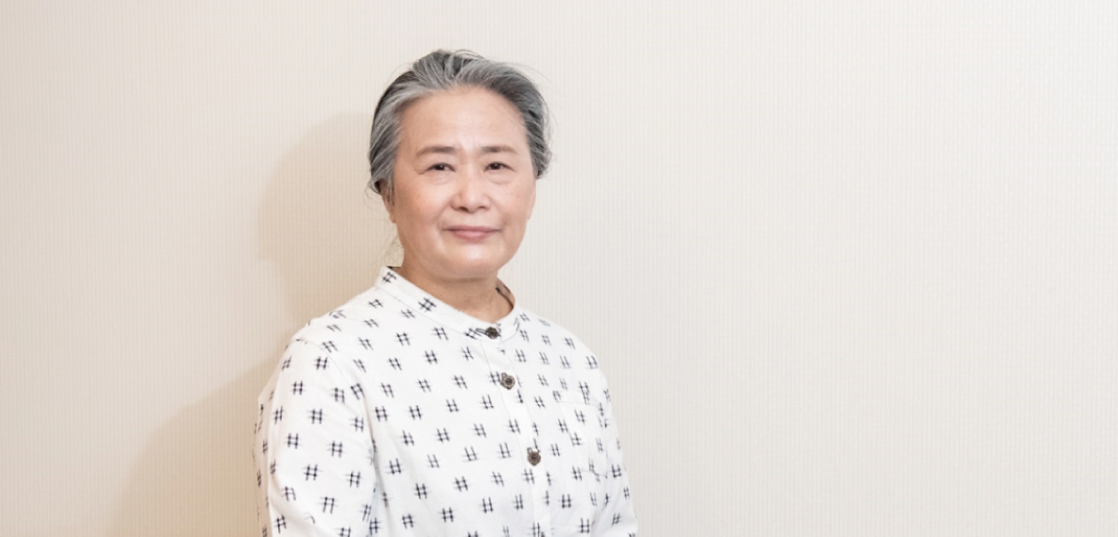「目貼剝ぐ(めばりはぐ)」――隙間風が入らないよう窓などにしつらえた目貼りを、春になって剝がす様を表した季語です。断熱性や気密性に優れた現代の住宅に暮らす私たちにも、季語はかつての日本人の生活を伝えてくれます。
日本人の生活環境に深く根ざしてきた季語の魅力とは? そして、世界的な気候変動が続く中で、私たちは季節をどうとらえるべきなのか。テレビ番組への出演などでも知られる俳人・夏井いつきさんにうかがいました。
俳句は季語によって情景を想像するからこそ面白い
―夏井さんは『絶滅寸前季語辞典』(ちくま文庫)など、時代の変化とともに消えゆくおそれのある季語を積極的に取り上げ、発信されています
夏井いつきさん(以下、夏井):『絶滅寸前季語辞典』の初版が出た2001年頃は、俳句の世界で「季語を整理しよう」という議論があったんです。「もう使われないものは歳時記※ から削除して、新しい季語を入れたほうがいいのではないか」と。
私は歳時記を読むのが趣味という人間なので、そうした論調に対しては「冗談じゃないよ」と思っていました。その危機感が『絶滅寸前季語辞典』を書くことにつながっていきました。
※俳句の季語を分類して、解説を加え、例句を載せた書物

夏井いつき(俳人)
プロフィール:昭和32年生れ。松山市在住。俳句集団「いつき組」組長、藍生俳句会会員。第8回俳壇賞受賞。俳句甲子園の創設にも携わる。松山市公式俳句サイト「俳句ポスト365」等選者。2015年より初代俳都松山大使。句集『伊月集 龍』、『おウチde俳句』『俳句ことはじめ』『子規365日』等著書多数。
―なぜ季語を整理しようとする動きに危機感を持ったのですか?
夏井:季語って、認定機関があるわけではないんです。何かしらの協会が認定するようなものではなく、長い歴史の中で自然と定着していくもの。
「アコヤ貝」という貝をご存じですか? 真珠を作り出す貝なのですが、この貝の中に石などの異物が入ると、傷つかないよう幾重にも包み込んでいきます。その結果、ゆっくりと真珠が作られていく。季語の熟成も似ています。1つの季語ができるまでの年月は尊く、その期間こそがまさに文化だと思うんです。それを簡単に「いらない」と判断できるでしょうか。「もう使わない文化だ」と決める権利が、一体誰にあるのでしょうか。
でもこんな言い方をすると、「季語は経験することに意味があるのに、経験できないものを残していいのか」と反論されることもあります。
―「経験することに意味がある」とは?
夏井:俳句は「五七五」のたった17音しかありません。その中でいろいろなことを述べようと思っても無理があります。でも季語を使うことで、たくさんの人に情景を想像してもらえるようになるんです。
たとえば「風薫る」という有名な季語。テレビでは気象予報士の方々もよく使いますよね。その5音の言葉を聞けば、日本に住む多くの人が若葉の季節を思い浮かべるでしょう。さわやかな風を浴びた経験や、自分自身の眼球が緑に喜んだ体験を思い出すわけです。言うなれば季語は「最大公約数の共通理解」をもたらし、追体験をさせてくれる存在なんですね。
―たしかに、現代でもよく使われる言葉であれば想像や理解がしやすいと感じます。
一方で、多くの俳人が好んで使う季語に「亀鳴く」というものがあります。亀には発声器官はないはずで、その鳴き声を聞いたことがある人も本来はいないはず。つまり経験したこともなければ追体験もできない季語ですよ。だけど俳人は、「春の帳の中で何かが声を出している。あれは亀が鳴いているに違いない」という風流を好んで、「亀鳴く」という季語に惹かれるんです。
俳人とは、見たことも聞いたこともない物事でも五感で想像できる存在のはず。「見たことや聞いたことがないものは必要ない」と言うなら、それはもはや俳人の気概を捨てているのも同じではないかと思うんです。
このように俳句とは、季語によって想像するからこそ面白いんですね。「たとえ、現在経験できないとしても、情景を想像することはできる。もっというと雑学として楽しめるだけでもいいじゃん」というスタンスで、受け継がれてきた季語を伝えていきたいというのが私の思いです。
家の近くの木々を見ているだけでも、季節の違いを感じられる
―日本人は季節の変化を繊細にとらえて季語を生み出してきたのだと思いますが、最近は異常気象が続き、季節の移り変わりを感じるのが難しいような気もします。
夏井:それはね、ぼんやりと生きているからですよ。
俳句を始めると、人は季語を通じて、季節を感じるアンテナを普段から張り巡らすようになります。例えば「立春」は2月4日ころを指します。「2月の頭なんてまだ寒いよ」と思うかもしれませんが、立春を過ぎてからの風は、真冬の風とは違うんです。桜が咲くころには「花冷え」という季語があります。4月の桜が咲いている時期にも寒いと思うことはあるでしょう? でも、立春のころの寒さと桜が咲くころの寒さはまた違うんですね。
季節を感じるアンテナは、都会に住んでいても立てられるはずです。東京には木がたくさんあるし、さまざまな鳥が暮らしている。桜の咲く時期はみんな気にするけれど、同じようにアジサイの咲く時期を気にしてみたり、昨年との色合いの違いを気にしてみたりするだけでも、季節の変化を感じ取れるのではないでしょうか。自分の家の近くの木々を見ているだけでも、違いを感じられると思いますよ。
―俳句に親しむことで季節をより深く感じられるようになっていくのですね。
夏井:俳句を作っていると、俳句のタネを探そうとする意識がどんどん研ぎ澄まされていきます。アーティストや芸人さんたちがネタを探すような感覚で日々を暮らすようになるんですね。
道で何気なく目に入る看板を気にするようになったり、すれ違う人たちの服装の変化に気づいたり。そうした光景は普段から眼球に写っているはずですが、自分で意識しなければ見えたことにはならないのでしょう。俳句は、周囲の何気ない景色を面白いものとしてキャッチする訓練にもなるんですよ。私にとっては、この作業自体が好奇心を満たしてくれるものでもあります。

100年後に人々に贈りたい、これからの歳時記
―昨今では気候変動が大きな問題となっていますが、俳句の世界にはどのような影響をもたらしているのでしょうか。
夏井:第一に生き物たちの変化による影響でしょう。花の咲き方や色合いが変わってきているし、海沿いに住んでいる俳人からは「海水温の変化によって見られる魚の種類が変わってきた」という話も聞きます。気候そのもので言うと、北海道に住んでいる俳人仲間は「今年は降雪が少なくて雪の句が作れなかった」とぼやいていました。
俳句に携わる者として、気候が変わっていくことへの危惧はもちろんあります。ただ、そうやって変わりゆく気候を詠むのもまた、俳人の役割ではないかとも考えているんです。日本の季節がずれてきたからといって俳句が詠めないわけではありません。ルポルタージュのように、今の変化を淡々ととらえていくことも必要なのではないかと。
―100年後の日本人にとっては、2020年代の貴重な史料になるのかもしれませんね。
夏井:そうですね。
今は変化が多いと感じるかもしれませんが、冒頭でお話したように、季語は大変長い期間を経て生まれていきます。例えば「花粉症」という言葉は日常的に使われていますが、歳時記にはまだ載っていなくて、「次の時代の歳時記に収められるかもしれないね」というレベル。たくさんの人に「花粉症は春の季語である」いう共感が広まり、実際に秀句(秀でた俳句)が生まれ、多くの人が俳句として詠むようになってはじめて、次の時代の編者が季語として歳時記に収めるわけです。そうした長い長い文化の変遷こそが史料となるのでしょう。
―「次の時代」とは、どれくらいのスパンを指すのでしょうか。
夏井:「だいたいこれくらい」と決まっているわけではありません。俳人として歩みを深め、「自分がやるべきだ」と思う人が次の時代の歳時記を編む。そうやって続いてきたのです。
私自身も、いずれ歳時記を編纂したいという思いがあります。『100年歳時記』として100年後の人々に贈りたい。仮に私が生きている間に編纂できなくても、次の世代の人に受け継いでいきたいと思っています。
俳句のタネは夫婦ゲンカでも、嫌な上司の愚痴でもいい
―夏井さんは、豊かな季語を受け継いでいくために何が必要だと考えていますか?
夏井:俳句というものに、ほんのちょっとでも興味を持ってくれる人が増えれば変わると思っています。だから俳句の種をまく活動を粛々とやり続けています。テレビ番組に出演して約7年になりますが、番組を見て俳句に興味を持ち始めた人もいるはず。少しずつでいいので季語にアンテナを立ててほしいですね。
―最近ではTwitterなどで「うまい五七五」を投稿する人が増えています。
夏井:うれしいですね。
他の文学と俳句がちょっと違うのは、作者と読者、つまり「発信する側」と「受け取る側」が同じ立ち位置にいることだと思うんです。小説だとなかなかそうはいきません。「ちょっと小説書いてみよう」で多くの人の共感を得るのは難しいじゃないですか。でも俳句なら、SNSで軽くつぶやいて共感してもらうこともできます。つながりが拡がるほど、いろいろな人の句をキャッチして勉強できるようにもなるでしょう。
私は、俳句を高尚なものとして祭り上げる必要はないと思っています。俳句のタネは何でもいいんです。夫婦ゲンカでも、嫌な上司の愚痴でもいい。俳句をやることで退屈がなくなり、ストレスや負の感情を解消できれば最高ですよね。みんなを幸せにできるアイテムとして上手に使ってほしいです。俳句は、日常を豊かにしてくれる「使い勝手のいいアイテム」ですから。
※文章中敬称略
取材・執筆:多田慎介/撮影:稲田礼子

